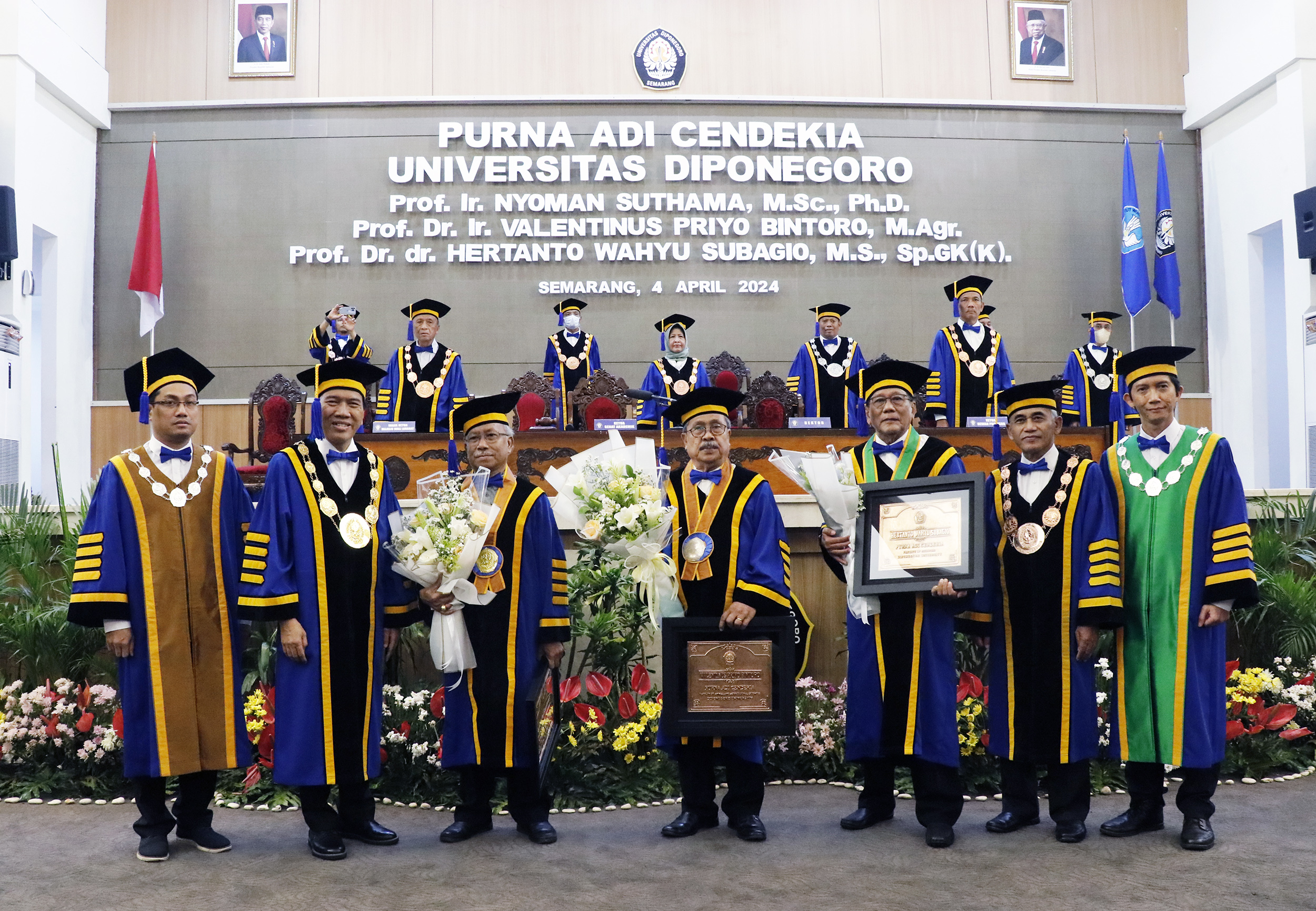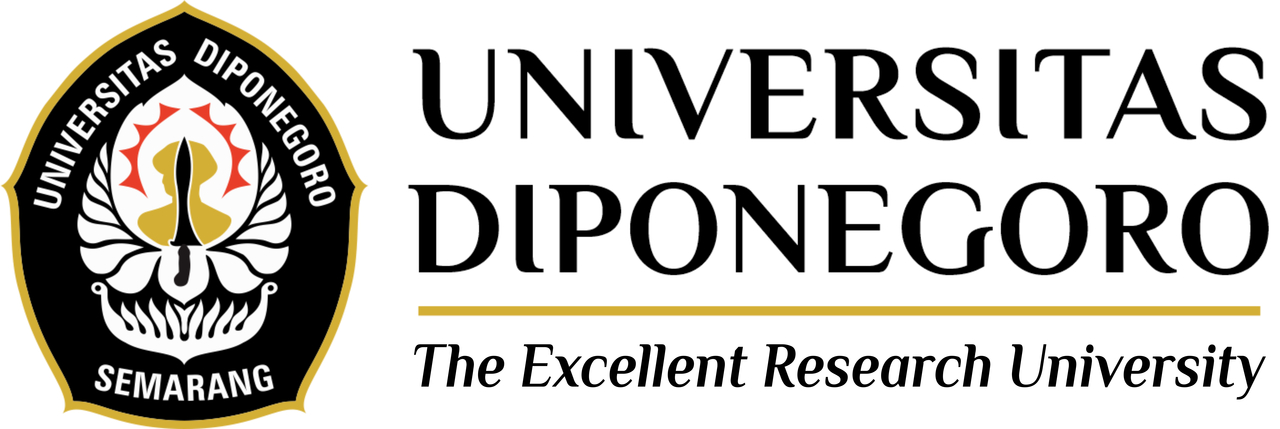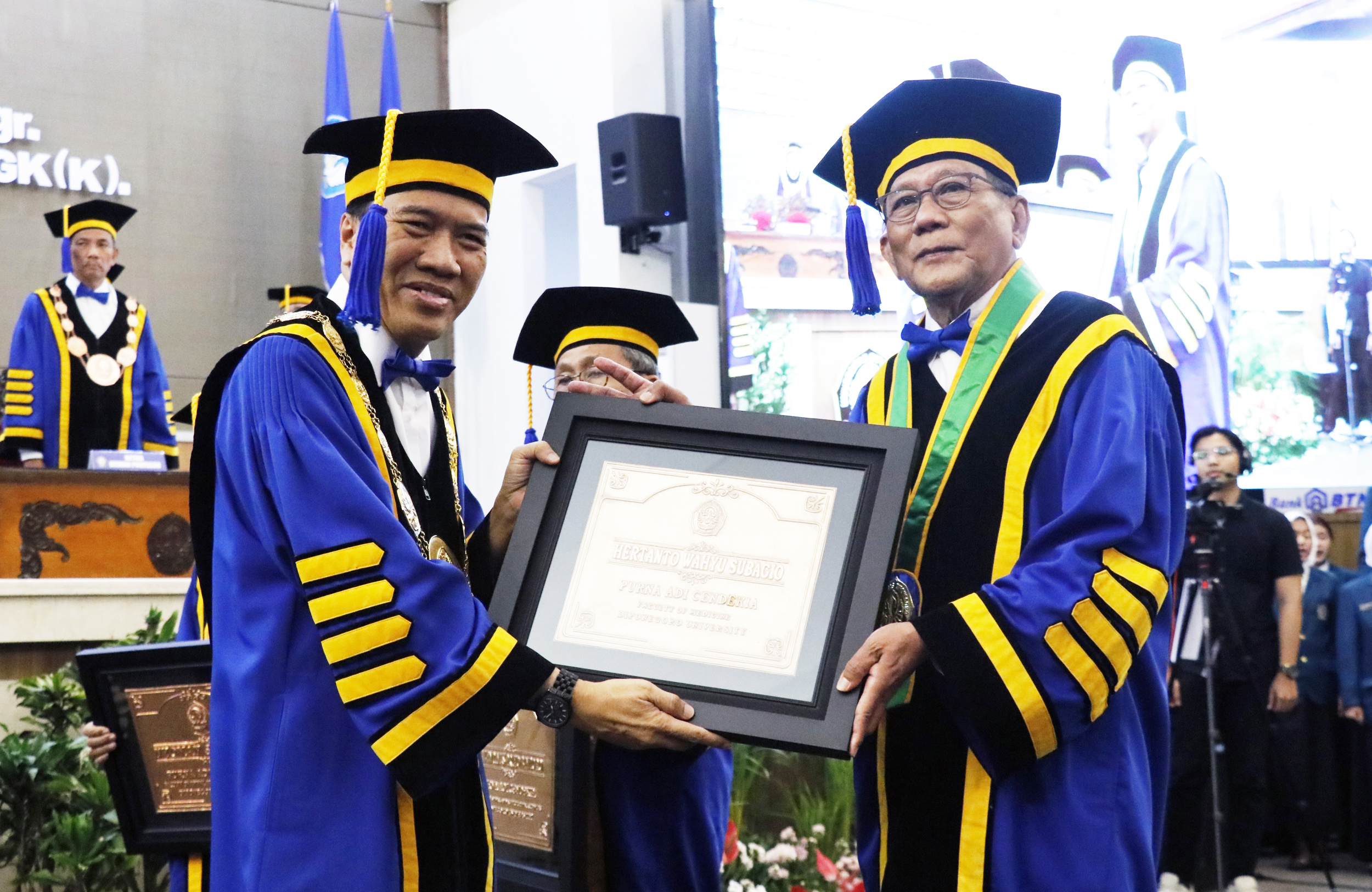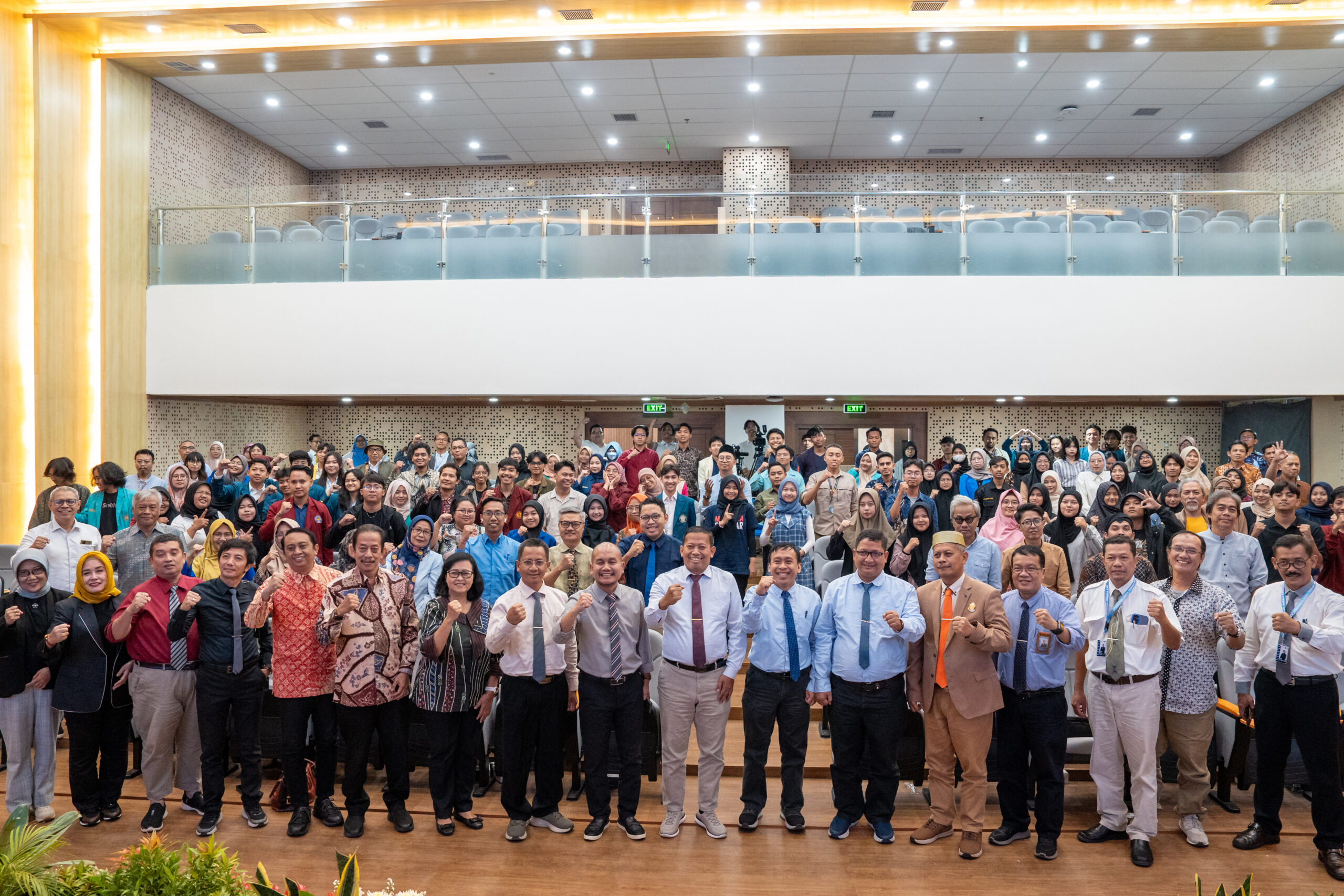One of the Professors of Diponegoro University (UNDIP) has entered the retirement era. He is Prof. Dr. dr. Hertanto Wahyu Subagio, M.S., Sp.GK(K), a Professor from the Faculty of Medicine specializing in Nutrition Science, has contributed significantly with ideas and research for the advancement of UNDIP.
To mark his retirement period, Prof. Dr. dr. Hertanto Wahyu Subagio, M.S., Sp.GK(K) had the opportunity to deliver a scientific speech titled “Hospital Malnutrition, in the Past, Present, and Future” at the Open Session of the Purna Adi Cendekia Academic Ceremony, Thursday (04/04) at the Prof. Soedarto, S.H. Building, UNDIP Tembalang Campus.
According to Prof. Hertanto, malnutrition refers to undernutrition caused by inadequate intake, utilization disorders of nutrients in the body, or both. “Malnutrition is a problem often found in hospitalized patients, which seriously affects the patient’s healing process, potentially increasing morbidity and mortality, ultimately leading to length of stay (LOS) and higher costs,” Prof. Hertanto explained.
Malnutrition can occur in patients upon admission to the hospital, and its prevalence and severity usually increase during hospitalization. Malnutrition is characterized by weight loss, muscle wasting, and loss of subcutaneous fat.
The Vice Rector I of UNDIP for the Period 2011-2015 revealed that malnutrition cases in hospitals need attention, especially from medical personnel, as its consequences can be detrimental to patients and hospitals.
“A study of adult inpatients hospitalized for more than 7 days found that patients admitted to the hospital in a malnourished state and experiencing a decline in nutritional status during hospitalization had a longer length of stay (approximately 4 days longer) than patients admitted and discharged with good nutrition. In addition to length of stay, malnourished patients are more prone to complications during hospitalization than patients with good nutrition, resulting in higher treatment costs,” he said.
To address the issue of malnutrition in hospitals, there is a strategy called Medical Nutrition Therapy (MNT). The steps of the Medical Nutrition Therapy (MNT) strategy begin with Screening, Assessment, Diagnosis, Therapy, and Monitoring.
Hospital management also needs to realize the importance of the MNT strategy as it can reduce the length of stay and costs. In addition, the limited human resources with competence and authority in Clinical Nutrition contribute to the implementation of MNT.
“The limitations of resources in assessment, diagnosis, therapy, and monitoring hinder the success of patient nutrition services. Often, these limitations occur due to errors in setting priorities,” Prof. Hertanto expressed.
Management issues should ideally be resolved through a cross-sectoral approach involving stakeholders, hospitals, health insurance, and relevant parties. The shortage of human resources can be addressed by increasing the number of Clinical Nutrition Specialist Doctors (DSpGK). Currently, the number of Clinical Nutrition Specialist Doctors (DSpGK) graduates in Indonesia is still around 430, and the universities producing these graduates are only three, namely Unhas, UI, and UNDIP.







